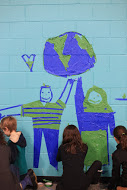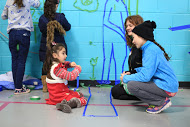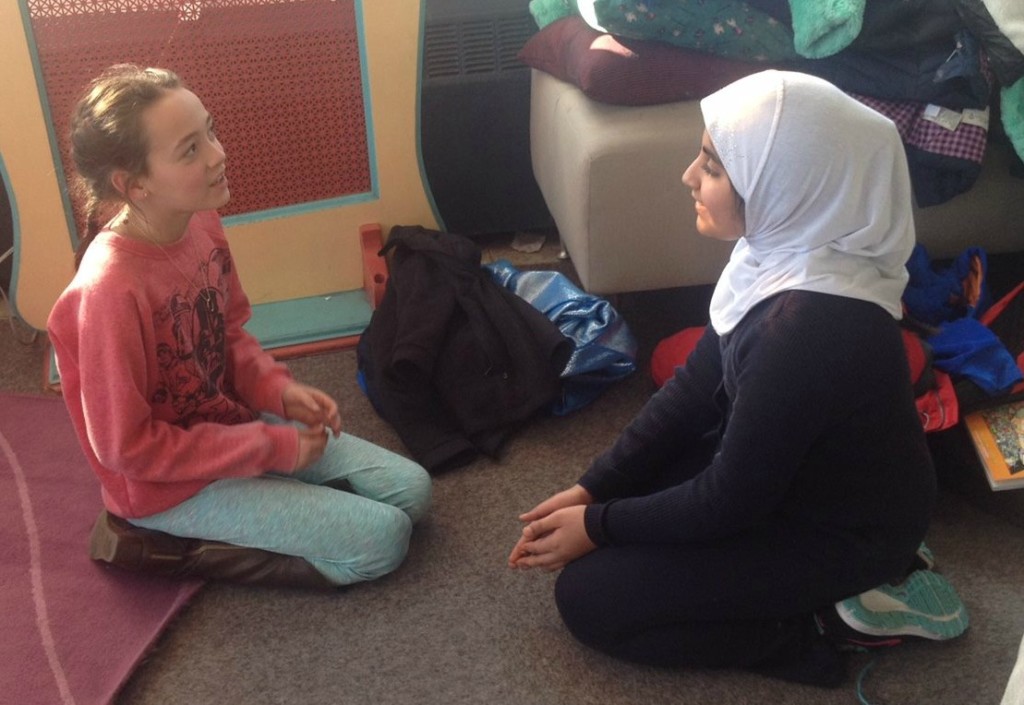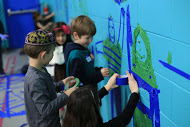One fascinating question each Jewish day school must face is, “which Jewish values do we teach?” Certainly a Reform Jewish day school and a Satmar Yeshiva will have different takes on the definition of what are true “Jewish values.” From the meaning of mitzvot to Zionism to interacting with the broader non-Jewish society, ‘authentic’ Jewish values can run the gamut. In my Jewish community, one of the values we hold dear is anti-racism. This is important to us, not just as a pluralistic Jewish day school, but also as a school that believes deeply in the values of the United States of America as a melting pot of all people. But how does one teach anti-racism?
According to a study in Nature Neuroscience, racial bias is prevalent even in toddlers and, while better concealed and repressed in adults, it continues to affect the way we perceive one another. It seems that, according to this research, it is physiologically impossible to be ‘color-blind;’ we are all predisposed to trust those that look like us, and feel apprehension towards those that look different. And yet others read that data differently. It could be understood that children placed within very diverse pee r groups have fewer physiological effects of bias when presented with different races, indicating that race may be purely a social construct. If that is the case, then, we could presume that, if our society were diverse and mixed enough, we would not feel or think racist thoughts whatsoever.
r groups have fewer physiological effects of bias when presented with different races, indicating that race may be purely a social construct. If that is the case, then, we could presume that, if our society were diverse and mixed enough, we would not feel or think racist thoughts whatsoever.
So anti-racist Jewish day schools face an interesting dilemma: How does a school that is made up predominantly of white, middle class Jews teach our children to love, not fear ‘the other?’ Within a predominantly homogenous environment, how can we teach xenophilia over xenophobia?
I believe it is critical for us to engage ‘the other.’ Our students must have real, meaningful relationships with people of color and of different religions before they have a chance to form stereotypes. While we build our students’ identities around a communal “we,” we mustn’t allow them to see any other group of people as a “they.” We have to teach our students to see others with the same subtlety and nuance as we see ourselves: as a diverse network of individuals who are complex, caring, and spirited people.
This is the ‘why’ behind ou r partnership with the Islamic School of Rhode Island. Originally, our plan was limited to having a day of community service together with ISRI. Then we realized that meeting once would do nothing to build the kind of relationships necessary to combat the stereotypes and prejudice we are inundated with daily by the media, our politicians and our society. We began looking for a way to develop a cohort of Jewish and Muslim children that could work together long-term. In the end, we came up with a much more ambitious plan: one that we believe will create the kinds of relationships necessary to combat prejudice, racism, and stereotyping.
r partnership with the Islamic School of Rhode Island. Originally, our plan was limited to having a day of community service together with ISRI. Then we realized that meeting once would do nothing to build the kind of relationships necessary to combat the stereotypes and prejudice we are inundated with daily by the media, our politicians and our society. We began looking for a way to develop a cohort of Jewish and Muslim children that could work together long-term. In the end, we came up with a much more ambitious plan: one that we believe will create the kinds of relationships necessary to combat prejudice, racism, and stereotyping.
For three months, our fifth graders are meeting with their Islamic school peers at the Center for Dynamic Learning, twice a week for two-hour sessions. For forty-eight total hours, our students will be working together, learning about and practicing theater, based on their own lives, cultures, and histories. This long-term project will allow students to really get to know one another, build relationships and develop the affinity and trust for one another necessary to combat prejudice.
 We are already almost a month into the program. Is it working? Our students are beginning to remember one another’s names and get to know one another’s personalities. They are working on projects together and laughing together – a lot. They have come to realize that “they are just kids like us.” Our fifth graders agree that this program is one of the best parts of 5th grade. They are excited and happy to see their new friends each week.
We are already almost a month into the program. Is it working? Our students are beginning to remember one another’s names and get to know one another’s personalities. They are working on projects together and laughing together – a lot. They have come to realize that “they are just kids like us.” Our fifth graders agree that this program is one of the best parts of 5th grade. They are excited and happy to see their new friends each week.
As educators, we hold certain values to be absolute and unquestionable. These values, whatever they are, are critical to pass on to our children. At JCDSRI, seeing “Betzelem Elohim” – the holiness of all human beings – is one of those values. For this reason, we seek out ways to meaningfully and cooperatively engage our ‘Other.’
